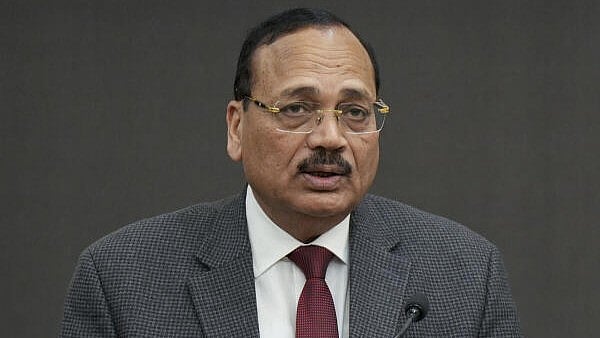
CJI-designate Surya Kant
Credit: PTI Photo
The appointment of Justice Surya Kant as the 53rd Chief Justice of India presents an opportunity to raise the quality of both the Bar and the Bench. Justice Surya Kant’s extraordinary journey of four decades in law positions him well to address the challenges facing legal education and the legal profession and to help build better lawyers and judges for India.
The following five ideas could be pursued with the substantive involvement of the higher judiciary, led by the Chief Justice of India, in collaboration with the chairman and members of the Bar Council of India, which is the national regulatory body for legal education and the legal profession under the Advocates Act, 1961:
Democratising judicial clerkships to bring talent to India’s district courts
Justice Surya Kant has an opportunity to promote transformative reforms with a view to democratising the judicial clerkships programme and expanding it to include district and subordinate courts across the country. The foundational vision for this reform rests on the fact that the district courts of India constitute 85% of India’s total caseload. Yet, they remain largely outside the purview and aspirations of thousands of motivated law students. Implementing such a policy would enable young law students to understand and appreciate trial processes, evidence evaluation, case management, and day-to-day judicial reasoning at the district court level. Trial-level competencies can be built through judicial clerkships at district courts, where a large proportion of India’s legal challenges, such as pendency, delays, improper investigation, absence of effective cross-examination, and other bottlenecks of the civil and criminal justice systems, are most visible.
NALSA should collaborate with law schools to develop a training ecosystem
The National Legal Services Authority (NALSA) aims to provide free legal services to the weaker sections of society and to organise Lok Adalats for amicable settlement of disputes. The objective now should be to develop collaborative initiatives between legal aid clinics in law schools and NALSA.
This will help nurture a new generation of lawyers who are more committed to public interest lawyering. The collaboration will help focus on enhancing core litigation skills such as trial advocacy, evidence, cross-examination, writing and research capacities relating to drafting of pleadings and build intellectual capacity for statutory interpretation.
Augmenting skill-based training for trial advocacy and appellate practice
India has more than 1,700 law schools imparting legal education. However, the knowledge and skill acquired across these institutions remain diverse and far from uniform. A renewed focus on trial advocacy could lead to developing training modules on evidence, cross-examination, and case strategy. The judiciary could collaborate with the Bar Council of India and the State Bar Councils to launch national and state trial advocacy fellowships, which could be integrated into both legal education for law students and capacity building for practising lawyers. The Supreme Court and the High Courts could collaborate substantively with law schools to establish litigation labs. The Supreme Court Litigation Clinic at Harvard Law School is a good example of how collaboration between the higher judiciary and law schools can help build the next generation of lawyers.
Promoting access to justice and public service pathways
The future lawyer must be anchored in public service and not limited to corporate and commercial practice. Justice Surya Kant can lead the efforts to initiate a comprehensive National Public Defender Service, which could transform the access-to-justice landscape in India. A judicially supported pro bono framework could be developed in collaboration with the Bar Council of India. An equally important effort that needs to be undertaken is to encourage rural legal practice. If more than 70% of India’s practising lawyers are concentrated in metros, we are creating rural justice deserts which will threaten the very foundations of the rule of law. Judicially encouraged legal practice fellowships for young lawyers to practise in district courts could narrow this gap.
Harnessing technology and preparing lawyers for an AI-driven legal future
The Indian judiciary is at the vanguard of changes that are leading the digital transformation of the justice delivery system – be it virtual hearings, AI-based transcription, AI-based due diligence mechanisms, or e-filing. India’s e-courts project is among the world’s largest such initiatives, covering over 21,000 courts. Under the leadership of the new Chief Justice, the judiciary can develop more lawyer-focused legal innovations in the field of legal tech.
The vision of preparing the future AI-driven legal system should consider establishing AI research labs within the Supreme Court and the High Courts to train judicial clerks and advocates. We need to have national certification courses, accredited training and capacity-building programmes on e-discovery, digital forensics, and even online dispute resolution mechanisms.
Building better lawyers and judges for India is indeed a national policy imperative. The new Chief Justice of India, Justice Surya Kant, is well poised to take this forward to the next level of legal system transformation, especially when a lot of groundwork has already been done over the last decade.
(The writer, a Rhodes Scholar, is the Founding Vice Chancellor of O P Jindal Global University)
Disclaimer: The views expressed above are the author's own. They do not necessarily reflect the views of DH.